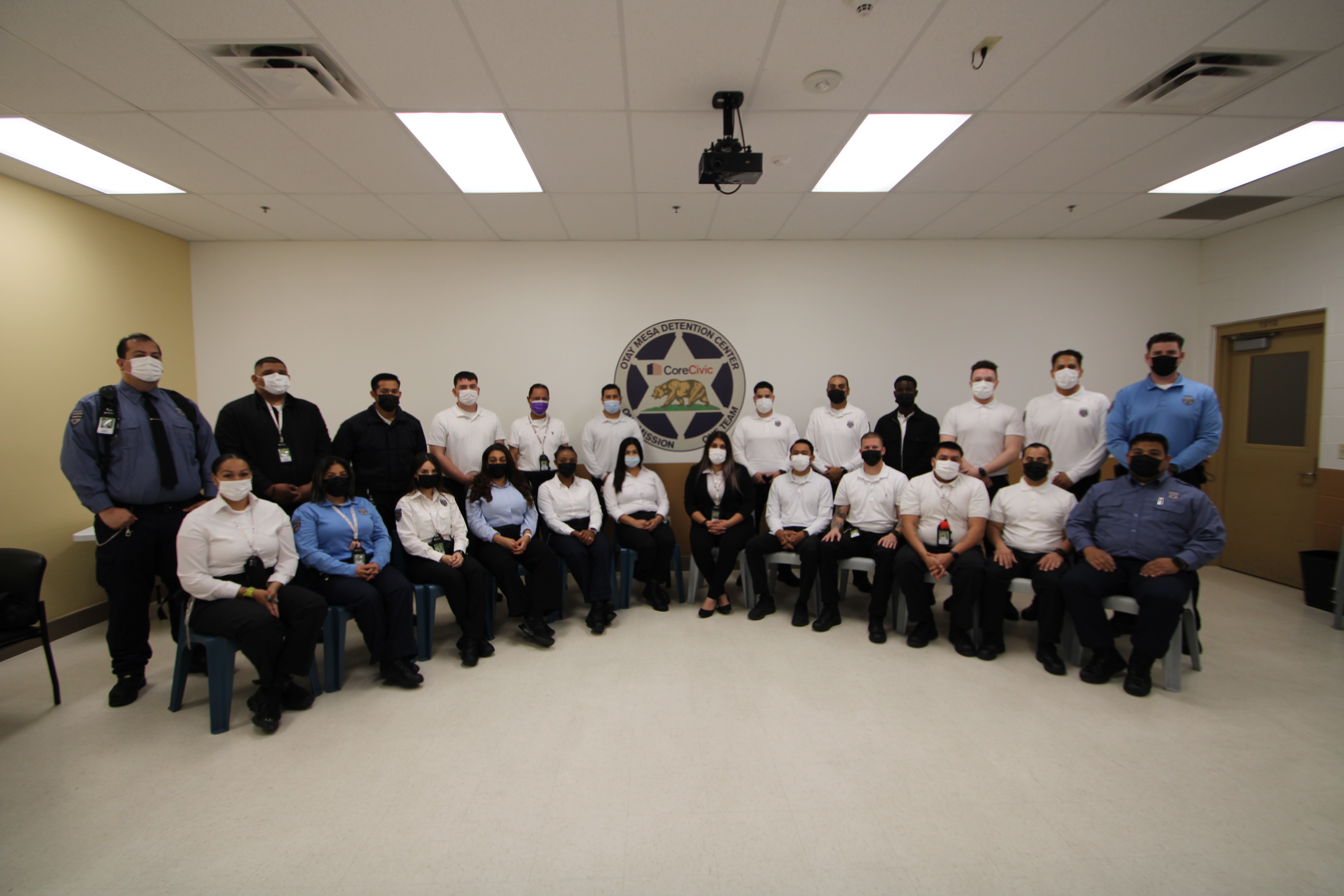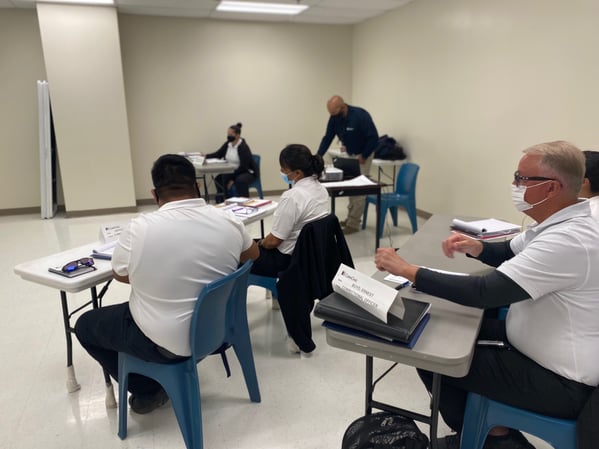
Correctional officers at CoreCivic work tirelessly to create a safe environment for those in our care. On a day-to-day basis, correctional officers must be prepared to approach a variety of complicated situations with compassion and respect. CoreCivic puts a strong emphasis on proper training to ensure our employees feel equipped and ready to serve.
Training parameters can vary depending on the requirements of each government partner. For example, in states such as Florida and Georgia, CoreCivic officers attend a state-certified academy to complete their training. In some other locations, CoreCivic facilitates a pre-service academy based on industry standards.
“We remain in close alignment with our government partners during the training process," said Coleman Morrell, director of Field and Operations Training. “Most partners stipulate we either follow their curriculum or a combination of theirs and ours, and we adhere to those guidelines.”
While each government agency has a different approach to training, the goal is the same: to prepare correctional officers according to the standards set forth by the American Correctional Association (ACA), so they are ready to serve their communities and those in our care.
Pre-service training at CoreCivic consists of a number of classes designed to prepare new officers to work with those in our care. Topics include de-escalation, critical incident response training (CIRT), first aid, suicide prevention, human rights, mental health, and more. Helping new officers understand the root causes of behavior helps them perform better and can improve outcomes for those in our care.

“A substantial amount of time is spent on our code of ethics, human dignity, and respect," Morrell said. “We focus on doing the right thing, at the right time, for the right purpose.”
De-escalation is one of the longest courses in CoreCivic’s curriculum and involves both a lecture and a roleplaying element. In the course, the instructor teaches the group effective ways to diffuse a situation, and then trainees act out a scenario using those skills.
“Not only are we going to teach you how to de-escalate a situation,” Morrell said. “But we are also going to practice it in a safe environment where you can learn and ask questions.”
CoreCivic uses the acronym REACH, which stands for remove, explain, ask questions, choices, and help. Systems like REACH help CoreCivic employees quickly get to the root of the problem and work to find a solution that makes sense for everyone. While physical training is included as part of onboarding, the goal is always to successfully de-escalate. Officers learn that any further interventions should be approached as a final option to keep people safe.
"If done correctly, we know de-escalation techniques work," Morrell said. "That's why it is a focus during the training period."
Once officers complete pre-service training, they move into On-the-Job Training or OJT. This training period is spent with more experienced officers, learning as they go. Experienced officers and employees can continue learning through both mandatory and voluntary training, including certification opportunities. CoreCivic provides 40 hours of continuing education annually.
Employees can also be selected for CoreCivic University's Master Key Leadership program, a training program designed to prepare employees for the next step in their careers. It's all part of a robust training program that Morrell points to as being one of the top in the field.
“I believe CoreCivic produces a curriculum that is comparable to the finest agencies in the country,” Morrell said. “I’m proud to be a part of an organization that is committed to creating a safe environment for the people who live and work in our facilities.”
